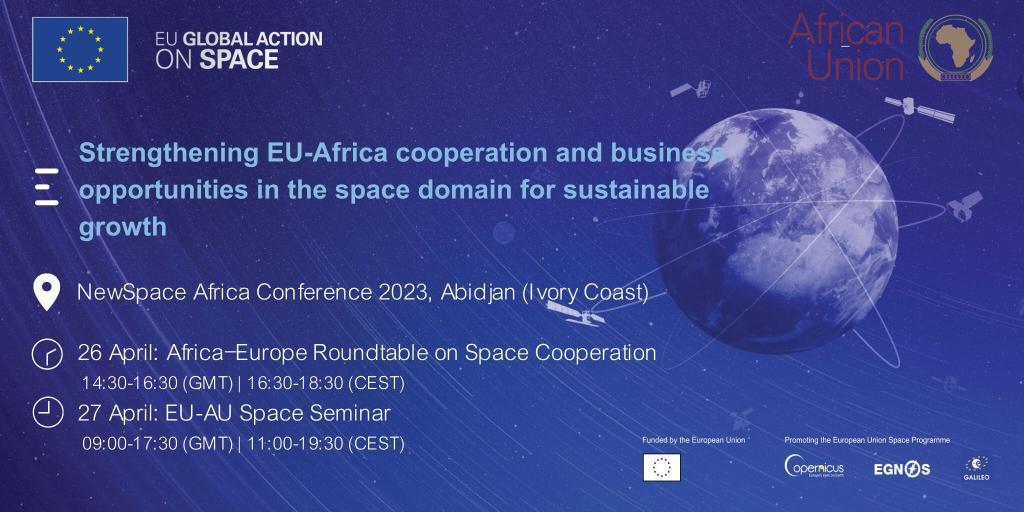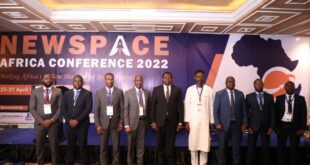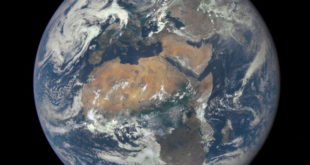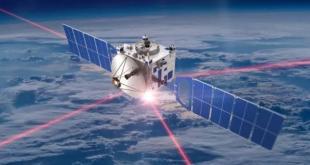By Savino Rua
On 26 and 27 April, the EU Global Action will participate in the NewSpace Africa Conference 2023 to put on display success stories and explore the new opportunities emerging in the fast-growing African space sector, a sector in which Europe is strongly present and sees new opportunities for business cooperation and growth.
Whether it is about business ties or cooperation at the supranational level, the EU-Africa partnership in the space domain is flourishing. New initiatives like the EU Global Action on Space are building bridges with emerging African astropreneurs, research institutions, and national space agencies. Established programmes such as GMES and Africa, cooperation on Satellite-Based Augmentation Systems (SBAS) in partnership with the Agency for Aerial Navigation Safety in Africa and Madagascar (ASECNA) and the Joint Programme Office for Satellite Navigation in Africa (JPO) keep providing key data, services and know-how that favour local development.
A growing market synonymous with new opportunities
The recent establishment of the African Space Agency represents only the crest of a new wave of developments revolutionising the African space sector, which is expected to grow by 16% by 2026. The 2010s represented a turning point: several African countries established (or reassigned) their national space agencies (Angola, Ethiopia, Namibia, Rwanda) or accelerated their space programmes through massive investments. This includes stepping up the development of nationally owned satellite constellations, with a particular focus on Earth Observation. As an illustration, between 2019 and 2021, South Africa almost tripled its space budget from 56 to 192 million euros.
The expansion of national and pan-African space programmes, together with the allocation of considerable financial resources into the space sector is having tangible results in the space ecosystem, with effects particularly spilling over into the downstream segment. Notably, market research has identified an increasing demand for space-based services in specific market sectors such as agriculture, mining, and natural resource management, which hold great relevance for Africa’s socio-economic development.
The European Union and the African Union have benefited from a fruitful and long-lasting partnership in space
The European space ecosystem, with its cutting-edge technology, is well-equipped to address the range of unmet needs. The flagship components of the EU Space Programme currently serve billions of end-users at the global level and can bring added value to space-related initiatives developed by the African Union, its member States, or other entities. Copernicus, Europe’s Earth Observation Programme, provides high-quality satellite imagery thanks to its Sentinel satellites and third-party missions, while Galileo and EGNOS deliver Positioning, Navigation, and Timing (PNT) services with unmatched accuracy. With the Infrastructure for Resilience, Interconnectivity and Security by Satellite (IRIS2) initiative announced recently, the EU Space Programme will feature a new component providing secure connectivity over specific geographical areas, including Africa.
Earth Observation and Positioning, Navigation, and Timing (PNT) provide crucial data and services to a wide range of stakeholders involved in these sectors, from governmental agencies to small enterprises. Whether used independently or in synergy, space technologies can improve the overall efficiency of operations, safeguard essential resources, and even save lives by providing emergency warning and search and rescue services. Concrete applications that are of particular interest to African countries include drought monitoring, crop surveillance, food security risk assessment, and flood mapping.
While helping users with concrete applications, the EU Space Programme is also supporting the global community in implementing the 2030 Agenda for sustainable development designed by the United Nations. By providing solutions for sustainable farming or air quality forecasts, the EU Space Programme helps achieve the Sustainable Development Goals for Zero Hunger and Good Health & Well Being.
The EU Global Action on Space as an instrument for enhanced cooperation
The growth of the space sector and the increasing demand of satellite-powered data and services trace a clear path where the European Union and the African Union can join forces to further put space at the service of their respective citizens. The EU Global Action on Space, an initiative launched in 2021 by the European Commission, is an instrument to serve this goal. Since then, the EU Global Action on Space has connected several EU and non-EU stakeholders involved in the space domain through pitching opportunities, matchmaking events and business coaching services.
The EU Global Action on Space can grant access to a wide array of partnership resources to African entities that plan to take advantage of European space-based services. Through tailored support, the instrument can help government agencies, private organizations, research entities, or emerging businesses to connect with the European entities that best meet their data needs. Once potential partners are identified, the EU Global Action supports both parties through all the phases leading to a partnership.
Between 2019 and 2021, South Africa almost tripled its space budget from 56 to 192 million euros.
Entities meeting specific eligibility criteria can benefit from the EU Global Action on Space, which also publishes global market reports. The latest market report for Africa explores the growth of the African space sector, delving into the evolution of the space industry and including region and country-specific analyses—in addition to the identification of sectors holding most potential for business cooperation.
Supporting socio-economic transformation from space
The upcoming NewSpace Africa Conference 2023 represents an excellent opportunity to put on full display European Union-African Union cooperation in the space domain. The four-day conference taking place on 25-28 April in Abidjan (Ivory Coast) brings together institutional actors and NewSpace companies to engage in fruitful discussions on the overarching theme of the conference: Space for Africa’s socio-economic transformation.
On 26 and 27 April, the EU Global Action on Space will lead two events with high-level speakers from the African and European space ecosystems taking center stage to discuss achievements so far, ongoing joint programmes and to explore the way forward to an even more successful cooperation in space.
The series of two events will be inaugurated on 26 April with an “Africa-Europe roundtable on space cooperation”. The roundtable will see the participation of African and European senior experts, programme managers, and industry representatives to discuss the topic of Space Cooperation for Business and Sustainable Growth.
The second appointment on 27 April will emphasize the private sector. The EU-AU Space Seminar about “Unlocking the full potential of private company service delivery through space data, science & technology, and services”, organized in collaboration with Expertise France, will provide a full day to African and European NewSpace companies to present their success stories and pitch innovative services in the downstream segment, with a focus on applications in agriculture and environmental, marine and coastal monitoring.
The Conference will also represent an excellent opportunity to announce the names of the 15 winners of the GMES & Africa Startups Development Programme. The Programme was launched in early February and aims to support innovative African NewSpace startups.
The 15 selected startups will take part in a two-day digital entrepreneurship training organised by the European Union to guide the winners towards the commercialisation of their ideas with practical easy-to-follow steps.
A way forward
The European Union and the African Union have benefited from a fruitful and long-lasting partnership in space. The Global Monitoring for Environment and Security and Africa (GMES & Africa) initiative has adapted the Copernicus Earth Observation programme and its services to the African context, addressing issues which are specific to African needs. With regards to PNT services, cooperation on Satellite-Based Augmentation Systems (SBAS) in partnership with the Agency for Aerial Navigation Safety in Africa and Madagascar (ASECNA) and the Joint Programme Office for Satellite Navigation in Africa (JPO) has been providing know-how to develop the first African Satellite-Based Augmentation System (SBAS) “ANGA”, with the purpose of supporting regional integration and development and improving the safety levels in the transport domain.
Since its launch, the EU Global Action on Space has been encouraging the further development of these programmes and facilitating the creation of new bonds at all levels. It will continue to represent an invaluable instrument in the hands of the European Union to build bridges with African stakeholders, create meaningful connections between the respective industry ecosystems and ultimately contribute to Africa’s socio-economic transformation through space-based solutions.
This article is part of a sponsored collaboration between SpaceWatch.Global and EU Global Action. The EU Global Action on Space is an EU-funded instrument which aims to promote the EU Space Programme globally and encourage international collaboration using space-based data and services in a broad range of domains.

Savino Rua is the International Relations Officer at DG DEFIS (European Commission). With a background in international relations and political science, Savino has 13 years of experience with EU policy making. He first joined the European Commission in 2009, and worked on the topic of EU tax and customs policy for over 10 years. Savino integrated the Directorate-General for Defence Industry and Space in September 2022, where he focuses on space cooperation with Africa.






